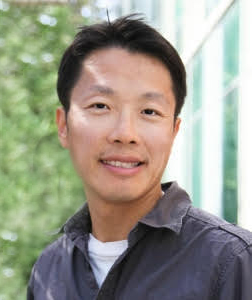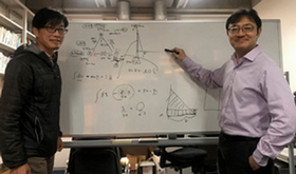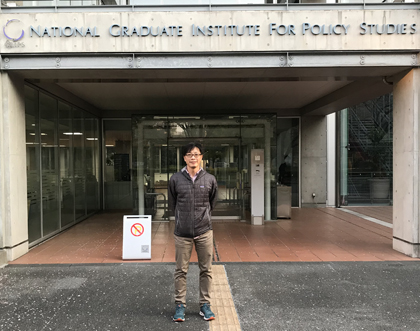Tell us a bit about yourself, your background, and how your path led to where you are today. 
I am an interdisciplinary scholar, an “intended” environmental chemist, turned into an energy economist, and now a professor at the Electrical and Computer Engineering Department. My official title is Professor of Technology Management in Sustainability. My education background, a Environmental Science BS from Taiwan, where I grew up, a Public Health MS degree from Harvard, and a Ph.D. from The Johns Hopkins University in Environmental Economics and Policy from School of Engineering there, and my research interests in solving sustainability issues make me who I am. But, the turning point was in Taiwan during my college time when I came by the environmental chemistry lab around 8pm at night and saw my environmental chemistry professor, alone, cleaning all the tubes or pipet by himself, and then I realized that it is not what I wanted.
As a professor, with a vast expertise in Energy, Environmental Policy, Economics and Water, what do you like to teach the most, and what is the most challenging and the most rewarding part of teaching?
I like to teach the electricity market or the US utility industry a lot, an upper-division elective class offered by the ECE department where engineering students learn how the electricity market works. Of course, there are a lot of economics and policy concepts that students have to become familiar with. One of the exercises that we went through was a two-week long Wholesale Electricity Market Strategic Bidding game, mimicking the operations of the California Independent Operator (CAISO). The same exercise also was run at UC Berkeley, Stanford and other big-name universities in their energy classes. Students in the class were grouped into a few firms who own a portfolio of generation assets and bid into the market to supply power. Students learn how their bids can affect the market prices and change the profits that they can earn through the market. They are surprised how much a power producer can make a fortune.
I believe that the most interesting and also challenging part in this class is to help engineering students learn to  think like an economist. Those are very bright students with mastery in math, physics and other engineering concepts, but they do not realize that social sciences, such as economics or political science, which involve human behavior are, or could be, harder! I emphasize in the class that social science research, and the data that is collected, is not intended to answer or constructed to solve the questions these researchers set out to study. This is in contrast to engineering research, which typically occurs in a well-controlled situation or environment where isolating causal effects is much easier.
think like an economist. Those are very bright students with mastery in math, physics and other engineering concepts, but they do not realize that social sciences, such as economics or political science, which involve human behavior are, or could be, harder! I emphasize in the class that social science research, and the data that is collected, is not intended to answer or constructed to solve the questions these researchers set out to study. This is in contrast to engineering research, which typically occurs in a well-controlled situation or environment where isolating causal effects is much easier.
I understand your work interest focuses on sustainability Issues in the energy sector, transportation infrastructure and water resources, and you were involved with the microgrid project at West side Research Park. Can you tell us what project or projects you are working on at the moment, that you are excited about and would like to share with us, and what do you see as the ideal outcome of this(these) project(s)?
One of the projects that I am working on is to find out the best way or workable principle to design a retail electricity rate that is economically efficient and socially equitable. The underlying issues are that many sustainable-friendly technologies, such as small-scale solar or roof-top solar or EV, could be regressive, meaning it benefits rich households at the expense of the poor people if the market is not properly designed. The reason is that once a household installed roof-top solar, they pay less to support infrastructure costs under the current rate structure which is based on your consumption. The California government is at the brink of embarking on a potentially costly social experiment to charge the household a fixed access cost to access the grid services based on its income. My colleague and I have published a piece at The Conversation to talk about this issue. Please check it if you’re interested!!
What does sustainability mean to you?
Wow! This is a hard question!! For me, sustainability is an intergenerational equity issue. We, the current generation, should NOT utilize natural resources in a way that impairs or damages the chance of our future generation to enjoy these resources as we would like. This means that, for example, the typical way the government evaluates a project based on the cost-benefit ratio with an exponential discount rate might not fully account for the future generation’s preference! There has been discussion about, instead, using hyperbolic discount rate to address intergeneration choice.
Lastly, what do you do for fun outside of work?
Other than spending time with my kids, Olivia and Ian, I have been an avid fisherman since I was 8 years old, a family tradition for four generations now, developing my love and appreciation of fly fishing and tying my own flies when I was at the east coast at graduate school. Now, I do surf-fishing, catch-and-release, for perch, salmon fishing (but the season since last year is closed due to unhealthy population), halibut, rock cod, crabbing; and hopefully I will have an opportunity to learn how to catch tuna.

